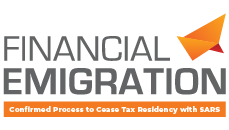Government Withdraws Proposal To Impose Exit Tax On Retirement Interests
Expatriates and those with plans to emigrate will be relieved to learn that the proposal to impose an exit tax on retirement interests will be withdrawn. In presenting their Draft Response Document on the 2021 Draft Tax Bills, National Treasury and SARS confirmed that the proposal will not be included in final Taxation Laws Amendment…





